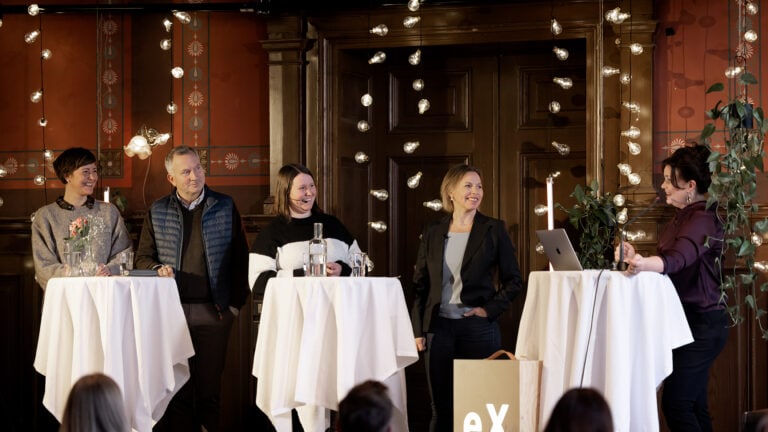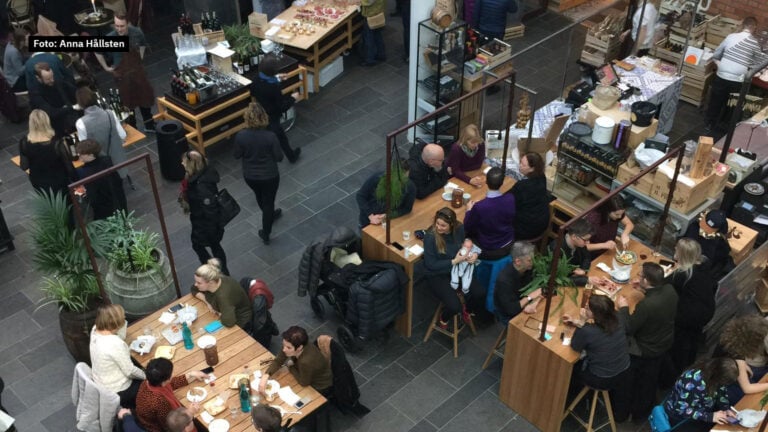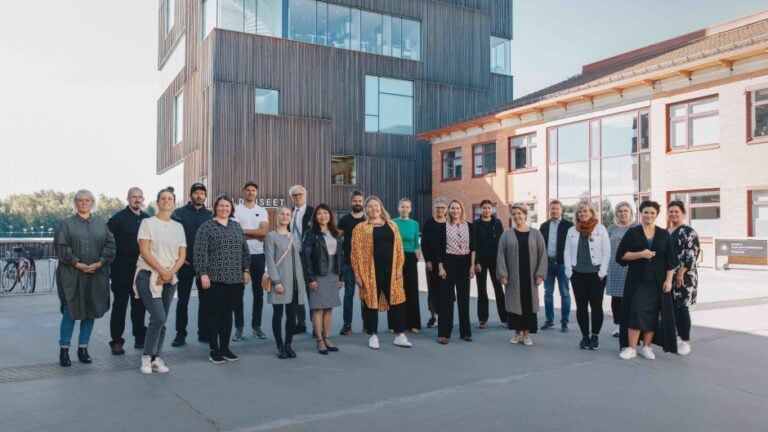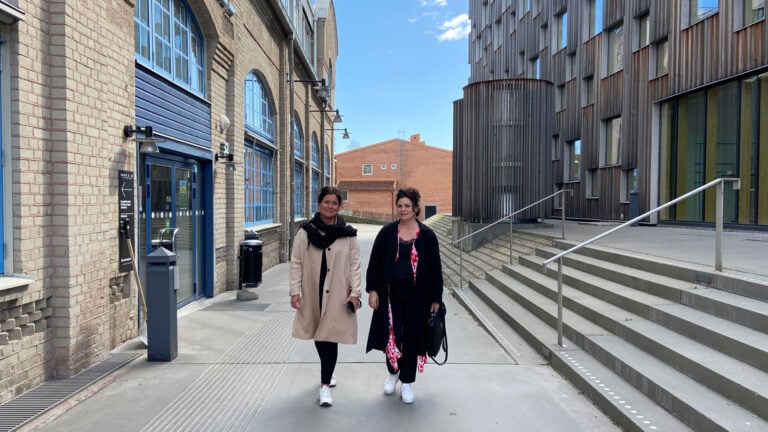Ingmar Inredning was founded in 2010 in Skellefteå and has since then constantly developed the business.In 2014 they moved to larger premises and in 2018 they grew further by taking over the neighbouring store. Despite the company's constant growth, founder Marie Andersson says she has never worked as hard as she did last year when the pandemic hit.
The pandemic has meant a lot of work for companies in the retail sector, but Marie chooses to take a positive view of the future. Covid-19 has brought with it many tragic fates, but it has also contributed to some positive developments for trade. For Ingmar Inredning, the pandemic has meant, among other things, that the company has increased its use of social media - filming itself and building relationships with customers digitally.
I don't know if we would have dared to stand in front of the camera before the pandemic. But when it hit, we had no choice," Marie says.
For Ingmar Inredning, it's one take, no retakes when filming for social media. They want to create a vivid and natural feeling, like the customer is close, similar to the feeling they want to create in the store. In addition, multiple takes mean more time and resources from the company. Although the company does not reshoot or edit the videos, several of the videos have over 25,000 views on Instagram.
In addition to Ingmar Inredning's social media videos, the pandemic has affected the company's range of products. Normally, the store is visited by many Norwegians, holiday home owners and people with motorhomes/ caravans, but when the pandemic hit and customers were holidaying at home, demand changed and interest in outdoor and garden products increased.
New products and business models
Ingmar Furniture has also changed the way customers can shop in the store. Early on, it introduced the possibility for customers to FaceTime with staff for private shopping. Customers make an appointment and the staff helps them find products that matched their wants and needs. In addition, the option for customers to pick up products outside the store and in some cases home delivery was introduced.
In 2020, Marie and Ingmar Inredning have participated in a business development programme, Future Retail Lab, run by the business incubator eXpression Umeå. The programme brings together owner-operated companies from the retail and hospitality industries that want to develop their businesses. The programme has been instrumental in daring to test new business models and, above all, to learn from other entrepreneurs in similar situations.
It's great to be surrounded by entrepreneurs with drive and a positive outlook on the future. Our round of the programme involves everything from beer breweries, pet shops and clothing stores and although our businesses are different, we can learn a lot from each other, how others are dealing with the pandemic and challenge what heights we can reach," says Marie.
The social importance of shops and their impact on people's well-being has been brought to a head during this period
Marie Andersson, ingmar inredning
Positive impact of shops on people
At the beginning of my conversation with Marie, I hear her cheerfully saying goodbye to a customer in the shop. Marie tells me that the customer who has been inside lives in a nearby home and visits the store daily. Retail plays an incredibly important social role in the well-being of many people, and according to Marie, this has become even more apparent during the pandemic.
I was delivering home products to a customer and we ended up sitting in his stairwell talking about the customer's well-being. I had to call back later to make sure they were okay. Hospitality and social contact with customers is a trump card for us with physical stores compared to e-retailers.
There is no doubt that Marie is passionate about Ingmar Interior Design, but when she talks about her own motivation for entrepreneurship, it's all about being responsive and helping customers find what they are looking for. She believes that many customers know to a large extent what they are looking for and that they are an extended arm in the search.
Now we started an interior design shop, but it might as well have been car parts if that need had been identified in 2010 when the company started, Marie jokes. Me and my staff value good hospitality, the relationship with the customer and are driven by satisfying the customer's needs.
Cooperation for a vibrant city centre
Skellefteå, like many other city centres, has experienced challenges in maintaining a vibrant city centre in recent years. We are seeing a transformation of the retail sector with more stores moving to shopping centres or establishing themselves online. Marie believes that it is possible to preserve and strengthen a vibrant city centre, but it relies on cities daring to invest and shops working together, even if the other shop is a competing business. It's about looking at the bigger picture.
If you go to Skellefteå, you don't just go to one shop, but several. Visit Skellefteå's retail network has done important work to help shops see the bigger picture of a vibrant city centre. Daring to open up and guide a customer to another shop benefits the city instead of the same customer going home and buying online.
Ingmar Inredning has developed many parts of the business over the past year while keeping the core, the customer in focus.
When the customer cannot come to us to the same extent, we need to develop side activities so that we can visit the customer.
Because if shops are not loyal to their customers in these difficult times, why should we expect customers to be loyal to us? We have to be loyal to each other," concludes Marie.





